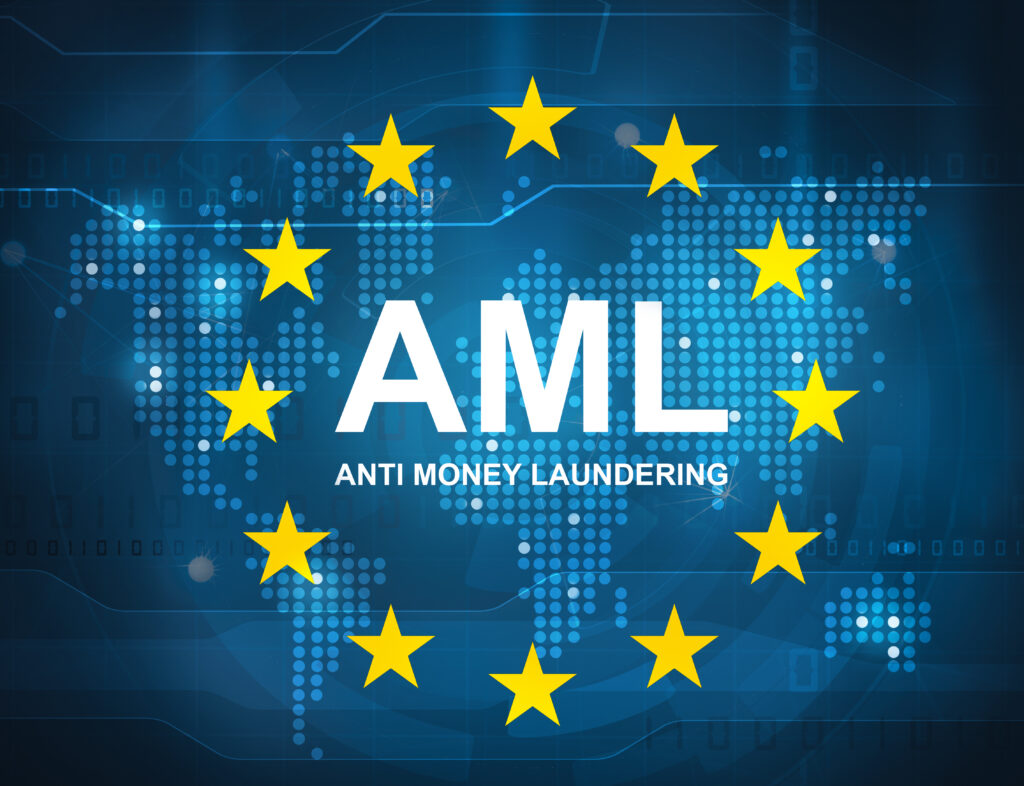Support for the financial services sector and other institutions obliged to implement the requirements of AMLD5
Why do we need to act?

Directive (EU) 2018/843, further AMLD5, amending Directive(EU) 2015/849, further AMLD4, introduced a number of new obligations towards both the market regulator and obligated institutions.
The implementation of Directive (EU) 2018/843 in Poland was carried out by the act of March 30, 2021 amending the Act on counteracting money laundering and financing of terrorism and certain other acts (Official Journal of Laws: Dz.U.2021.815). As part of the amendment to the national law on counteracting money laundering and terrorist financing, a number of changes were also introduced to supplement the incomplete implementation of AMLD4 in 2018.
The changes introduced in Poland include in particular:
- Expanded catalog of entities subject to the obligation to disclose the identity of the beneficial owner in the Central Register of Beneficial Owners, beyond the existing general partnerships, limited partnerships, limited joint-stock partnerships, limited liability companies, joint stock companies and simple joint stock companies, the amendment expanded the list to include, inter alia, European partnerships, cooperatives, European companies, associations entered into the National Court Register in Poland, foundations and trusts whose trustees have their place of residence or seat or establish economic relations in Poland
- The appearance of Chapter 11a of the Act regulating new obligations towards entities providing services to companies and trusts, as well as activities in the field of virtual currencies, including, inter alia, the requirement of mandatory entry in the relevant register, professional qualifications of staff, and no prior criminal record
- Introduction of additional obligations on the obligated institutions, e.g. related to the response to discrepancies identified between the data available in the Registers of Beneficial Owners and information obtained in the course of the implementation of due diligence at the stage of establishing a business relationship with the client or monitoring this relationship
- Once again, the catalog of obligated institutions was expanded to include, inter alia:
- tax consultancy and keeping tax books, provided by persons who do not have the qualifications of a statutory auditor or tax advisor
- real estate brokerage, subject to the minimum limit for a lease with a monthly rent not exceeding the equivalent of PLN 10,000 EUR
- trading or brokerage in works of art
- provision of services consisting in the storage of works of art, collectors’ items and antiques (also with a transaction amount limit)
- The provisions of the Act on the exchange of information between obligated institutions have been made more precise
- The catalog of circumstances requiring the application of enhanced due diligence was expanded by adding adding additional elements, including high transaction categories, e.g. wild life related and introducing the category of high risk customer being a third country national who applies for residence or citizenship in exchange of capital transfers or investments
- An obligation has been introduced to include in the customer or transaction risk assessment cycle the geographical criterion, i.e. high-risk countries indicated by the European Commission based on the delegation under Art. 9 AMLD4
- The requirement for the prior consent of the GIF (Polish FIU) or the Polish Financial Supervision Authority (respectively) to open a branch or representative office of an obligated institution in a higher-risk country
- Introduction by the Ministry of Finance of an official list of local public positions and functions recognised in Poland as politically exposed positions (PEP)
- The training requirement for employees of obligated institutions was updated by adding the requirement of training in the area of personal data protection in the context of AML/CFT
- The catalog of forbidden acts subject to fines for non-compliance was expanded, including the finer for failing to abide by the mandatory appointment of a responsible person among the members of the Management Board
As a consequence, it is necessary to reevaluate the existing AML/CFT Programmes by the obligated institutions, and reflect whether they require any amendment following the implementation in Poland of the AMLD4 and AMLD5.
The amendment of March 30, 2021 provides – as a rule – a period of 6 months for adaptation to new obligations, counted from the date of publication in the Journal of Laws.
Support offered in respect to AMLD5 implementation
- Training on new and existing regulatory requirements and good practice recommendations in the field of AML/CFT
- Legal advice on implementation and execution of obligations under the amended Act on counteracting money laundering and terrorist financing, as well as support in the implementation of AML/CFT requirements deriving from AMLD4, AMLD5 and FATF recommendations
- Support in conducting a gap analysis in the course if identifying the necessary changes to the existing AML/CFT Programme and advice throughout the process of determining the individual risk appetite of the obligated institution
- Support in the development of a roadmap and schedule for implementation of the agreed amendments to the AML/CFT Programme, including the design of changes in internal procedures and control mechanisms supporting the obligations set out in the AML/CFT regulations
- Support in conducting a post-implementation audit and delivery of the necessary training to all relevant staff

